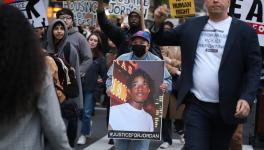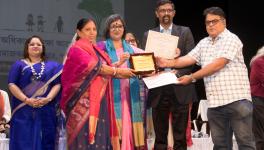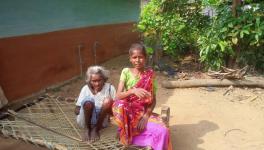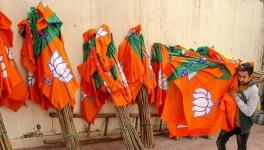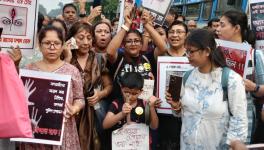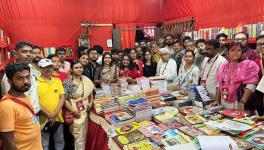UNICEF Leads Effort to Combat Child Marriage in West Bengal
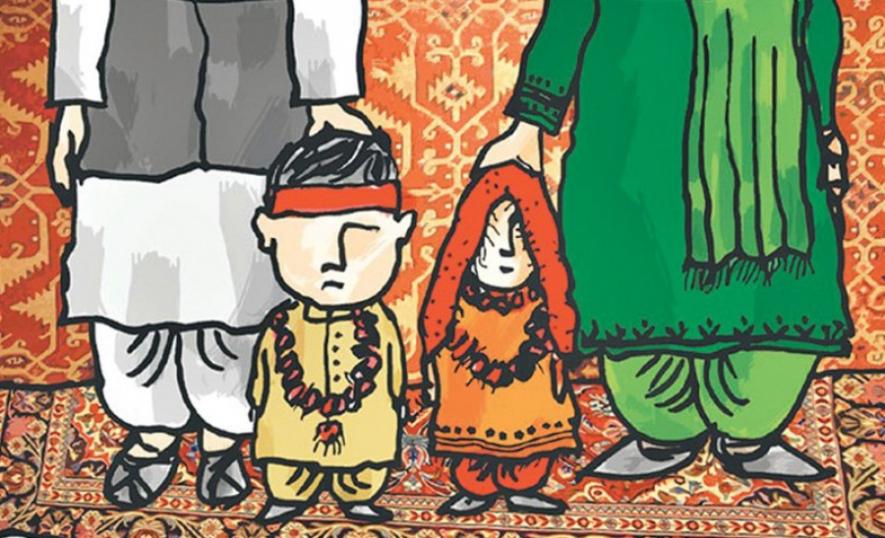
Kolkata: Baitali Ganguly of Jabala Action Research Organisation, a field Non-Governmental Organisation (NGO) working across many blocks of West Bengal, having rescued more than 600 children from early marriage cases, recently noted, "It's an era of darkness before them. There are no role models, nor is there anyone who can help them out of their less mundane daily life. Their villages do not keep a watch on them. In fact, in the book of the panchayats, their flight in the name of marriages to other places and even to outer states at an early age are not listed. At that time, if anyone, in the guise of marriage, offers them an olive branch, giving them hopes of a better future, then they cling to it tightly, not understanding the ramifications of an illegal early marriage or the matter that many of them find themselves in brothels after their husbands sell them off, after enjoying them for a month or so.”
"In most cases, with the help of the police, we have been able to stop the marriages, but there are still many cases happening, and we have been able to intervene in only a few of them," said Sirajul Islam, a field worker engaged with Jabala, tasked with halting early marriages.
Ganguli narrated an example of a trafficked child who told her that she did not feel any impetus to live in her village, seeing it as an extension of her home, especially with a migrant worker parent and a mother who was a daily wage earner, leaving them largely unattended. "Being in marriage seemed to be the best thing that happened to her at one point, only to find herself in a brothel as time passed. Her hopes, her dreams of tomorrow, were crushed at the early age of 15 years," she said.
Brihaspati Sardar, 16 (name changed), hails from a Scheduled Caste background. When a resident of Sonarpur in South 24 Parganas approached her through Facebook during the lockdown period, she agreed to marriage, ending her studies at the 8th standard in school. She was then 14 years and 6 months old and decided on an elopement marriage with the person. Now, at 16 years, she has become a mother after spending four months in a government hospital, as her organs were not yet developed and she had not attained childbearing age.
"Covid has been such an incident where all dreams seem to fall apart," said Ananya Chakraborty, advisor and former chairperson of West Bengal Protection of Child Rights, a quasi-judicial organisation.
All India Democratic Women’s Organisation (AIDWA) State Secretary Koninica Ghosh told NewsClick, “The state has climbed up the ladder in child marriage due to the lacklustre attitude of the administration and the police, child marriages have been rampant in the state for the last couple of years, especially in the last decade. As the workers of her organisation visit every home in the state, they have seen this condition whereby female children are missing from the village. Upon inquiry, it has been found out that they have been married off at a young age or have eloped with their partners."
In India, more than 80% of trafficked children are girls. In West Bengal, the number has risen so much that the state government had to set up a task force to save young girls from being trafficked. Girls always constitute a majority of the victims of trafficking, as seen in 2017, 2018, and even in 2020 amidst the pandemic. They are lured with promises of jobs and marriages outside the state.
Most of the child marriages that have taken place during lockdown are a result of forced marriages that often lead to child trafficking, say activists.
UNICEF’s Action Plan for WB
To address the situation, the United Nations Children’s Fund (UNICEF), the nodal organisation worldwide for the protection of child rights, a United Nations body, has come ahead with an ambitious plan, drawing up an action plan for the state government of West Bengal. Child Protection Officer of UNICEF, West Bengal, Swapnodipa Biswas, said, "UNICEF has been providing technical support to the West Bengal government to reduce child marriage in the state. District authorities of Purulia and other districts (Jalpaiguri, Alipurduar, Malda, Dakshin Dinajpur, Murshidabad, Birbhum, Kolkata, South 24-Parganas, Purba Bardhhaman, Purba Medinipur, Paschim Medinipur) have been assisted in forming and capacitating Child Protection Committees (CPC) at block and village levels to stop this practice. This programme helped in the orientation of the panchayat and police systems. It strengthened community responses by mobilising the village resource persons, frontline workers, paralegals, and civic volunteers on child protection issues. These efforts have been hugely bolstered through the involvement of more than 140,000 Self Help Group members who are taking an active lead in preventing child marriages across the state.”
UNICEF has also prepared a District Action Plan in coordination with the State government officials to address the issue of early marriage in each district. The UN body is also providing support towards strengthening schemes and programs (SAG-Kanyashree Prakalpa) for the empowerment of adolescent girls of 11 to 18 years (both school-going and out of school) to reduce child marriage.
UNICEF is now engaged in helping the administration of districts like Purulia, South 24 Pgs, Purba Bardhhaman, etc., to impart financial and digital literacy to adolescent girls to bring more economic empowerment to them. Kanyashree clubs have been formed/strengthened in 12 districts to help reduce child marriage and also offer a common platform for girls to come together and discuss other issues of health, nutrition, hygiene, sexual and other forms of violence, online safety, and various other emerging issues.
“As a result of these activities, many girls are informing the Child Helpline or district administration or the police if their parents try to fix their marriage before attaining the age of 18," Biswas said.
NewsClick also spoke with noted social worker Tapati Bhowmik of the famous NGO Sanlaap, engaged in the field of rehabilitation, who echoed the words of Baitali Ganguly and said that elopement and early marriages have led to higher cases of girls being trafficked. "In many cases, the girls who have recovered are pregnant, and they are going for MTP (medical termination of Pregnancy), which is a risky process for the mother to undertake at an advanced fetal stage. In my rehabilitation centre at Sonarpur, we have many such cases, and throughout the state, such cases are endless," she said in the interview. "All this, she said, stems from the fact that there is an absence of role models.
The West Bengal government is making significant efforts to address the issue," remarked Ananya Chakraborty of WBPCR. She highlighted one such initiative in Baruipur, where girls have established their own football club and Kanyashree Joddha clubs.
In West Bengal, there are financial aid schemes for girls until they reach womanhood. However, controversies exist regarding why these schemes have not effectively curbed child marriages.
"Poverty and child marriages are inherently linked," Chakraborty stated. She explained that these clubs aim to exert peer pressure on the entire ecosystem that fosters child marriages and raise awareness in schools to prevent such occurrences, as she discussed with NewsClick.
Get the latest reports & analysis with people's perspective on Protests, movements & deep analytical videos, discussions of the current affairs in your Telegram app. Subscribe to NewsClick's Telegram channel & get Real-Time updates on stories, as they get published on our website.












